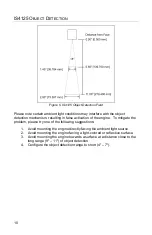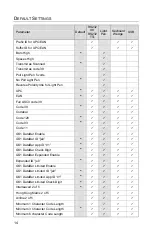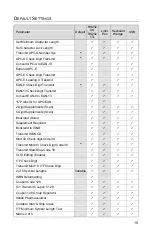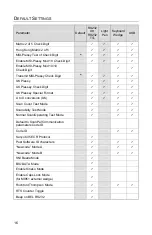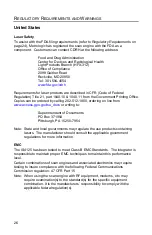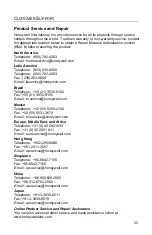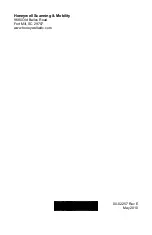
24
R
EGULATORY
R
EQUIREMENTS AND
W
ARNINGS
Regulatory Requirements
The IS4100 Series ScanQuest Laser Scan engines are designed to meet the
requirements of CDRH Class II and IEC Class 2 laser products. CDRH Class
II/IEC Class 2 are defined as follows:
Emission Duration:
Greater than 0.25 seconds
Accessible Emission Limit: Less than 0.001 W (1.0 milliwatts) average
radiant power
The IS4100 series ScanQuest laser scan engine is registered with the Center for
Devices and Radiological Health as a laser “component”. The addition of
emission indicators, shut-down control, labeling and informational requirements
are necessary to achieve compliance with the performance standard published in
the Code of Federal Regulations (CFR), Title 21 Parts 1040.10 and 1040.11.
Therefore, it is the responsibility of the manufacturer who incorporates the scan
engine into their product to provide the additional performance, labeling and
informational requirements necessary to comply with all federal laser safety
regulations.
Federal law requires that all laser products introduced into commerce in the
United States be registered with the CDRH, US Food and Drug Administration
through submittal of a Laser Safety Report. The manufacturer of the end
equipment must obtain approval and certification from agencies such as the
FDA.
The specifications required for agency approval are not obtainable until the
ScanQuest engine is used in its final configuration. Metrologic is unable to fulfill
these requirements because the scan engine will operate differently depending
upon where it is used as a component. The following information concerning the
scan engine appears on the shipping label:
THIS DEVICE DOES NOT COMPLY WITH 21 CFR 1040.
USE ONLY AS A COMPONENT.
Manufacturers incorporating unmodified ScanQuest engines into their product may
reference the following accession number on items in their Laser Product Report
that request information concerning features inherent in the ScanQuest engine
design.
Accession Number: 8820576-14, -19
If the product is to be used in another country, they must fulfill the requirements
for that country. Refer to one of the following sections
Europe
on page 25,
United States
on page 26 or
Canada
on page 27 for further explanation.

